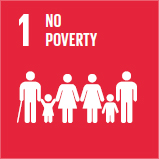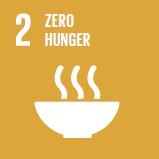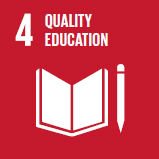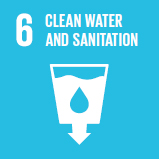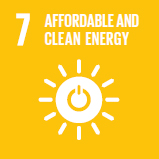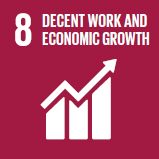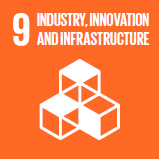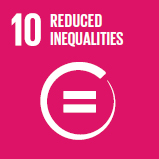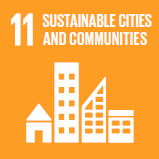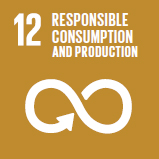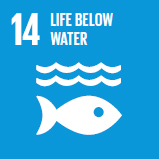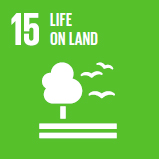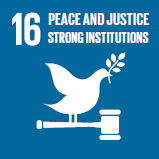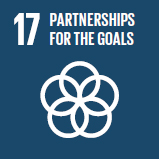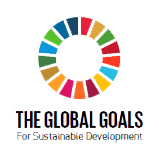- Home
- /
- Annual Sustainability Report 2021-2022
- /
- Operations
Operations
Managing environmental impacts
This report contains our performance record against the objectives of our Environmental Management System (EMS) which is accredited to ISO 14001:2015 and audited annually by British Standards Institute. Our current accreditation lasts until 2023. There are 2 relevant datasets:
1. Carbon emissions reduction performance – against targets for 2030 – which are part of our Carbon Net Zero Strategy – see the Net Zero section of this report.
2. Additional environmental management objectives – against targets for 2027 as part of our current Sustainability Strategy – see the data and policy aspects below.
Running an EMS and reporting on progress is essential for good sustainability governance and ours has both internal and external review and audit mechanisms. These overall system checks help us to assess and report on our material impacts, identify risks, reduce negative impacts, remedy weak areas and address concerns of our stakeholders (which includes staff, students, partners, local communities, and our executive team and University Council as our governing body).
We aim to make this data as easy to understand as possible, to aid transparency for stakeholders and auditors. Performance improvement actions are noted where we are falling short of our aims.

Performance data
- Reduce gas use
- Reduce electricity use
- Reduce water use per FTE
- Reduce waste arising
- Increase recycling rate
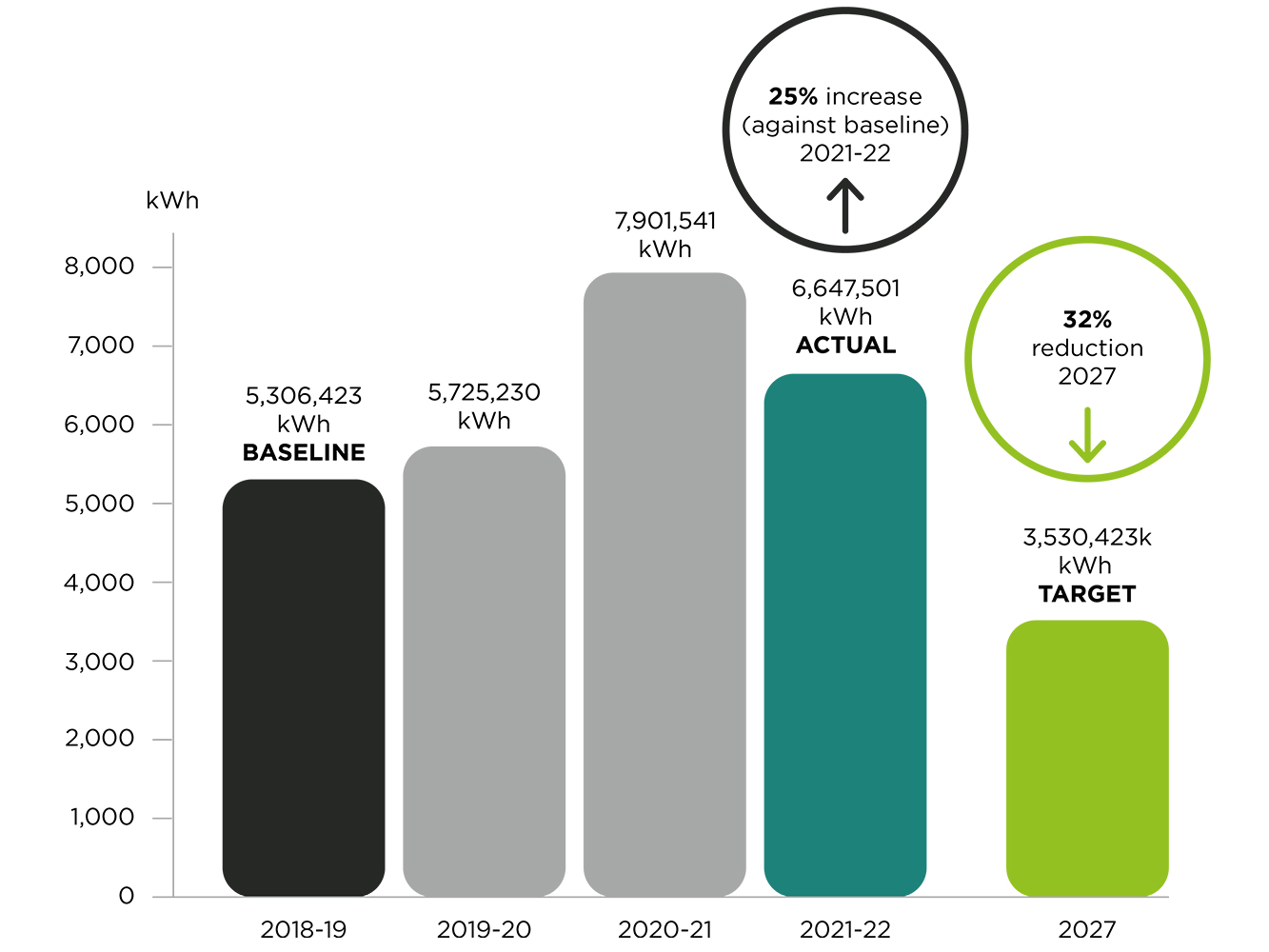
![]() Consumption has risen due to ventilation controls required during Covid but is expected to fall in 22-23 as the system has returned to normal settings.
Consumption has risen due to ventilation controls required during Covid but is expected to fall in 22-23 as the system has returned to normal settings.
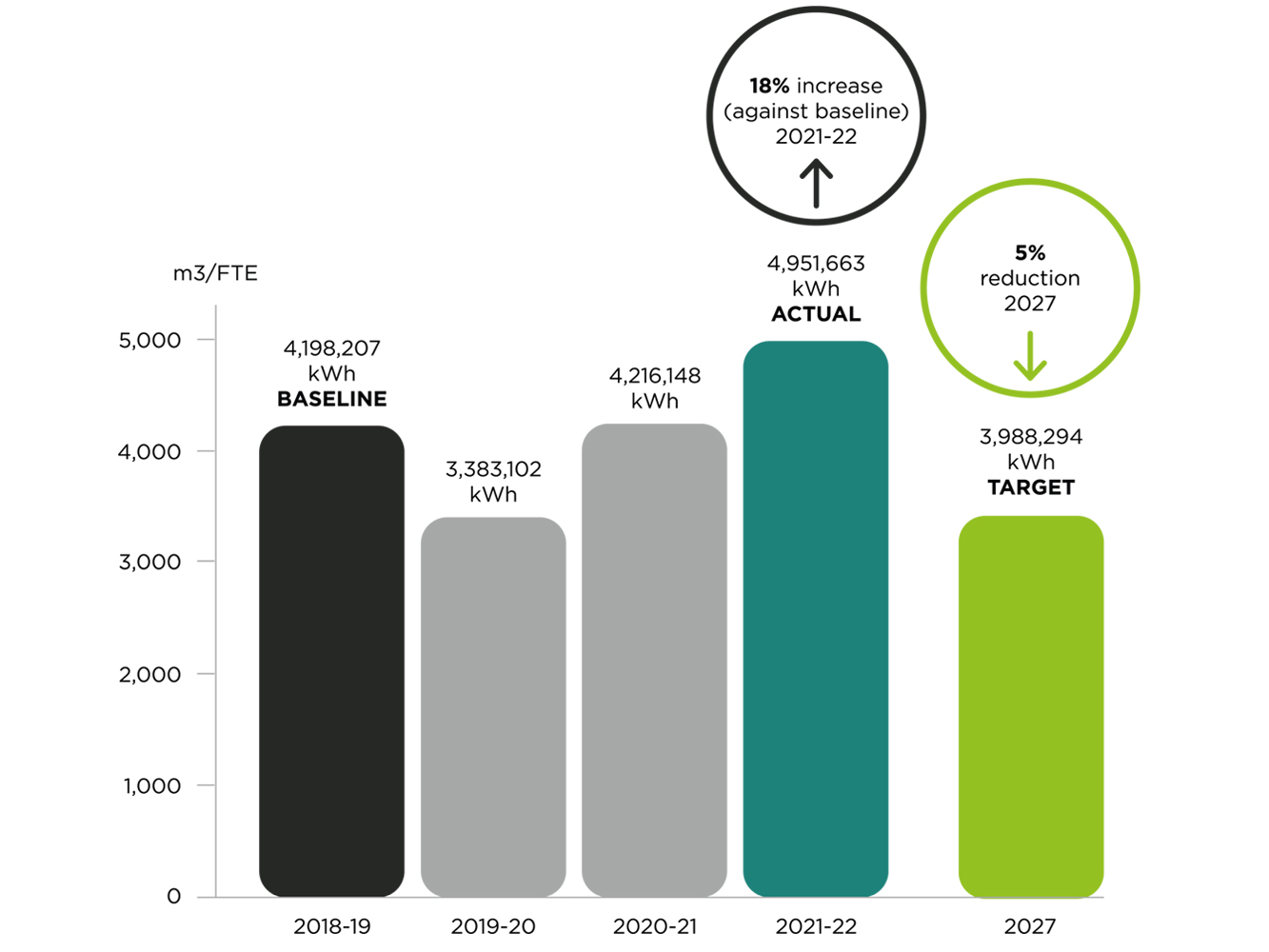
![]() Significant rise being analysed to determine if this is due to additional heating and ventilation use or other changes to electricity use patterns.
Significant rise being analysed to determine if this is due to additional heating and ventilation use or other changes to electricity use patterns.
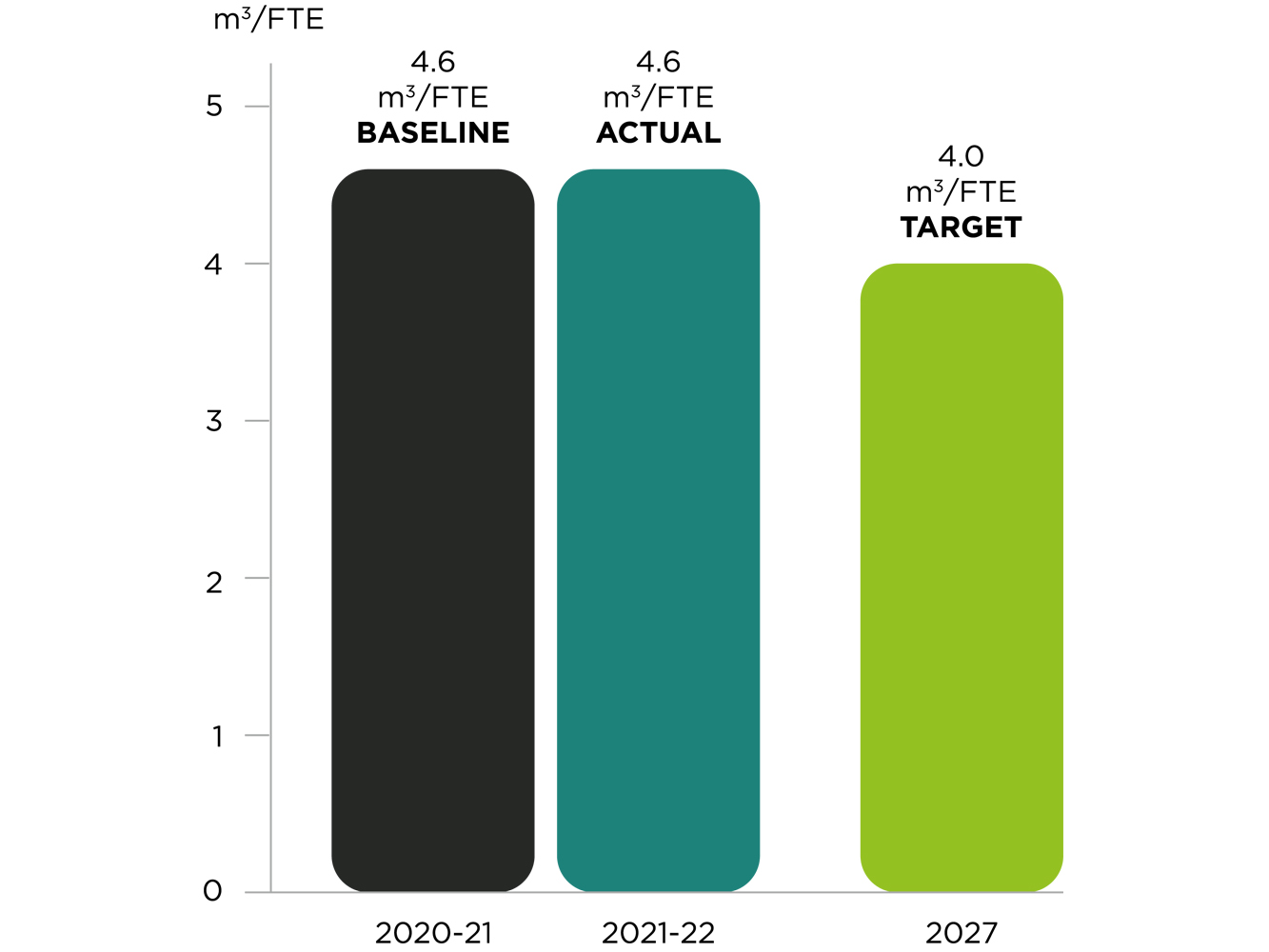
![]() This baseline was reset in 20/21 as part of the move to a new water supplier and improved record keeping, enabling more accurate improvement actions against a more meaningful efficiency target measuring use per FTE.
This baseline was reset in 20/21 as part of the move to a new water supplier and improved record keeping, enabling more accurate improvement actions against a more meaningful efficiency target measuring use per FTE.
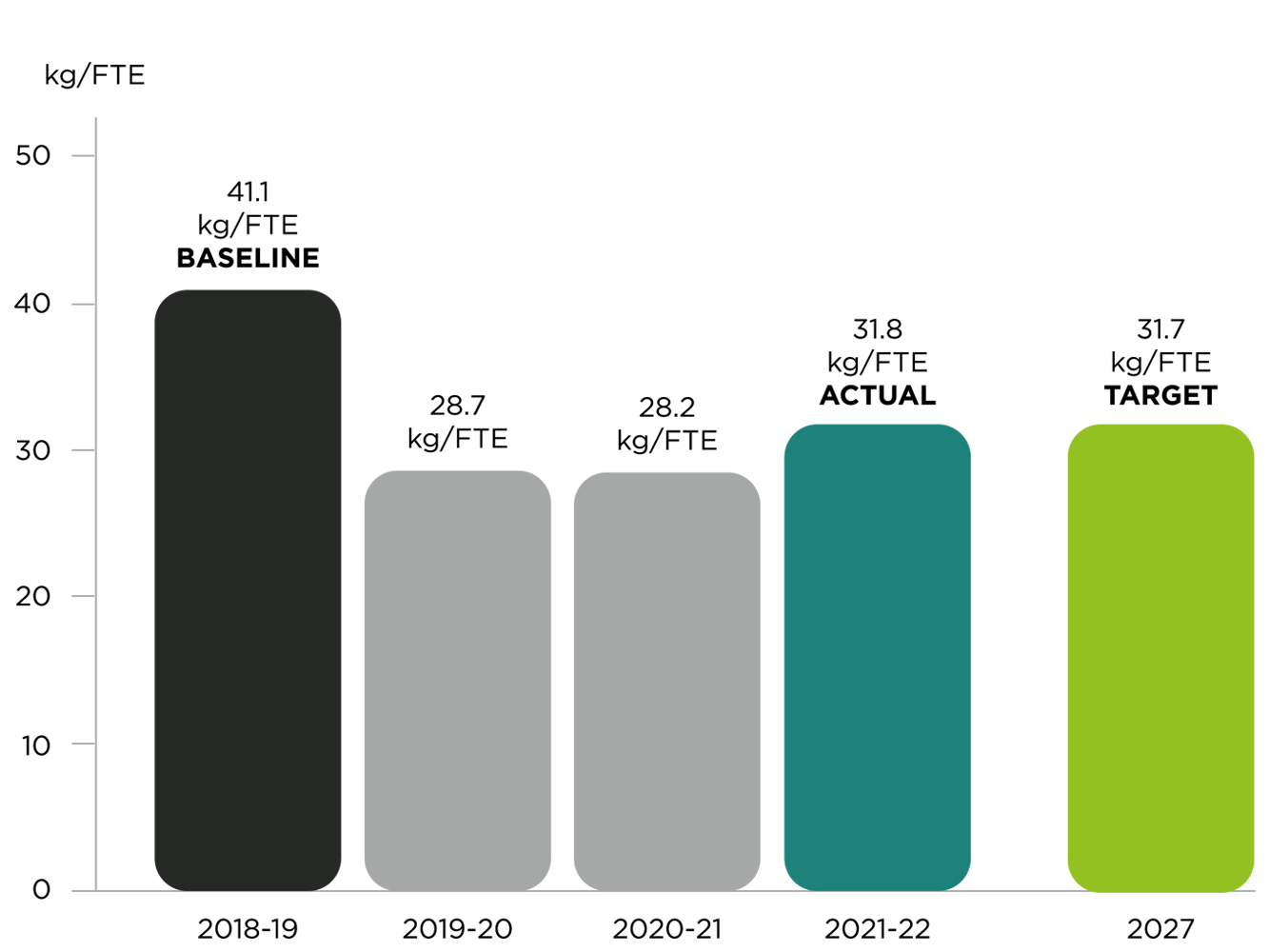
![]() On track with new target measuring efficiency of waste arising per FTE. Waste arising is important in the move to a circular economy in addition to tackling recycling.
On track with new target measuring efficiency of waste arising per FTE. Waste arising is important in the move to a circular economy in addition to tackling recycling.
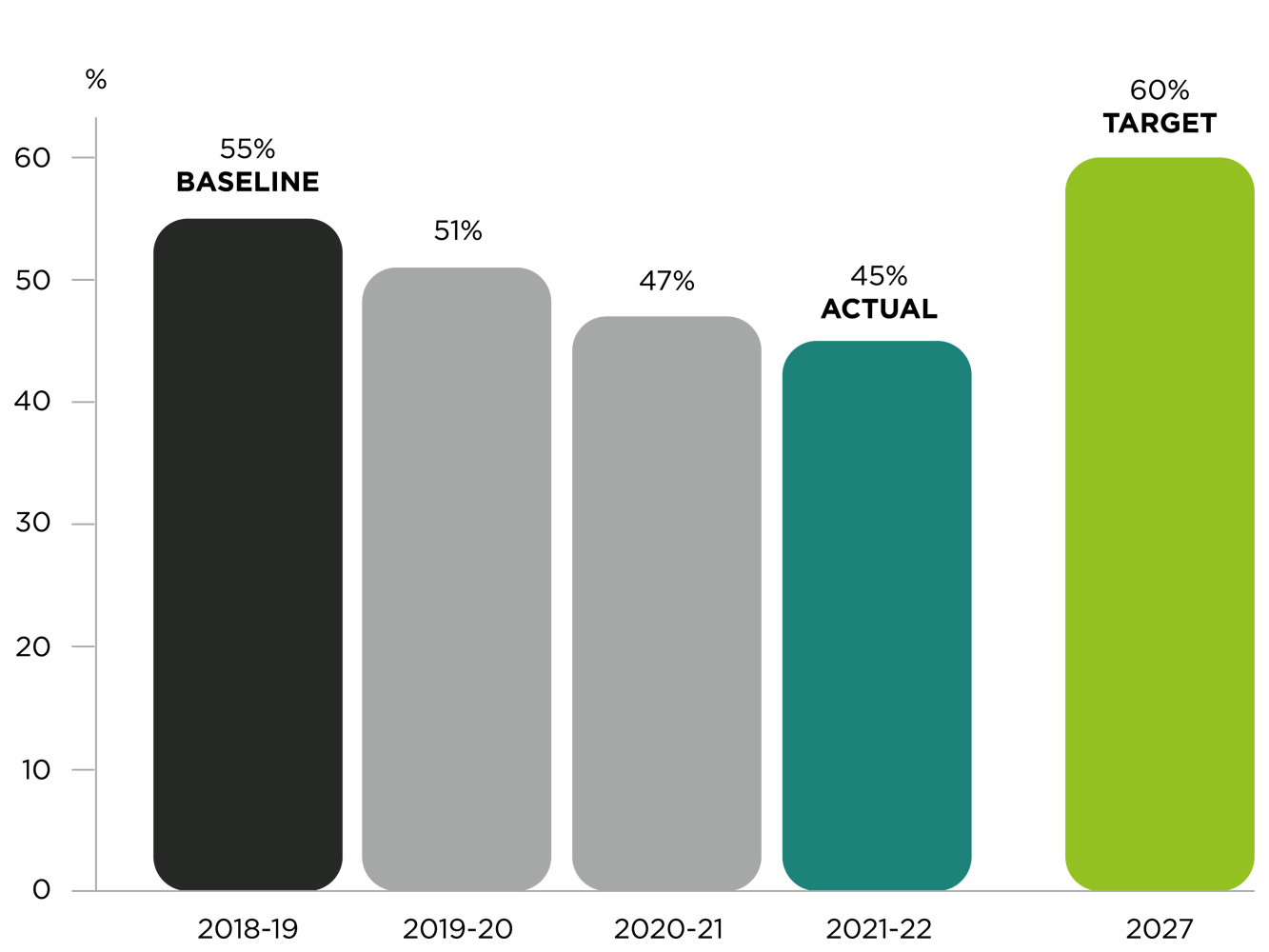
![]() Recycling rates have worsened in recent year and need analysis to gauge if this is due to poor practices in the pandemic or other causes.
Recycling rates have worsened in recent year and need analysis to gauge if this is due to poor practices in the pandemic or other causes.
Policy standards
As well as the performance targets above, our EMS has a range of policy objectives, that cover standards and practices we wish to maintain, to deliver the aims of our EMS and Sustainability Strategy. The status of these objectives at the close of academic year 2021-2022 was as follows:
Policy Objective
Compliance with legal environmental obligations
Complete divestment from fossil fuel in investments
Zero waste to landfill for waste streams
Red Tractor accreditation for catering operations
Marine Stewardship Council accreditation for catering operations
Develop and deliver new cross-campus biodiversity policy
Regional Centre of Expertise status with United Nations University
Education for Sustainability programme to change course portfolio
Monitoring of sustainability in academic activities
Student experience programme delivered collaboratively with students
Monitoring student satisfaction and interest through national surveys
STATUS
⬤
⬤
⬤
⬤
⬤
⬤
⬤
⬤
⬤
⬤
⬤
Environmental improvement actions
To maintain and improve performance, we oversee both annual and one-off initiatives across the university supporting our environmental management aims. In 2021-2022 this included:
Waste into Value in Student Halls
We work with the British Heart Foundation Pack for Good initiative to collect donated goods from student halls, avoiding waste and creating value for the charity. In 2022 we delivered:
- 1,057 bags from 7 campus donation points, worth £14,798 to BHF
- 8.4 tonnes diverted from waste streams, equalling 180 Kg of emissions
Sustainability catering measures
Our catering provider BaxterStorey monitors the following priority indicators – data for 2021-2022 is shown, with the previous year comparison in brackets:
- Vegetarian or Vegan choices as % of overall offer – 43.1% (44%)
- Food waste from onsite catering operations – 2.81% (3.6%)
- Consumption of disposable cups – 15.86% (100%)
Our ‘bring your own cup’ drive for hot drinks had to be suspended during the pandemic, meaning the use of disposables had peaked at 100%. Having reintroduced the surcharge, with customers paying an additional fee to choose a disposable cup, we have seen a reduction in the number of cardboard cups used.
To support changes that can reduce negative impacts, sandwiches sold in the refectories have been packaged in materials that can be recycled (cardboard and cellophane) instead of the previous film coverings that prevented the cardboard being easily recycled.
Reporting on the UN Global Goals
This report meets our annual reporting commitments on the Sustainable Development Goals (SDGs) as an institutional signatory to the tertiary sector SDG Accord.
Throughout this annual report, we record how the actions and results shown in this report contribute to the delivery of the UN SDGs. The actions on this page contribute to the specific goals marked below. For more information click here.

